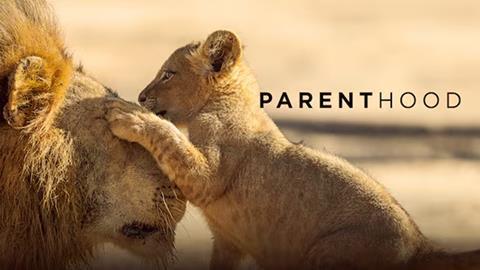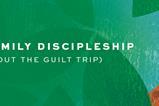Gareth Crispin explores how the latest offering from the BBC provides lots of opportunities for Christian parents to reflect on parenthood

Go to the ant, you sluggard; consider its ways and be wise (Proverbs 6:6)
With these words the writer of Proverbs shows that we have much to learn from the animal kingdom. That’s why perhaps the BBCs latest animal documentary, Parenthood, is so popular; it’s not merely another amazing nature documentary by David Attenborough it also invites us to consider our own relationships, in this case our parenting.
The first episode is The Greatest Adventure and whether we find it difficult or not it’s hard to disagree that parenting is indeed just that, a great adventure.
Maybe watch this series with your children and ask them about how they would describe parenting as if they were observing it like in a documentary – here are four reflections that you could include in discussion with them.
1. Parenthood is tough
One of the repeated refrains from Attenborough is that parenthood is challenging. Whether it’s lions, crabs or gorillas (or indeed humans!) parenting is hard. We are taken on a journey into the dark unknown with a hippo and her calf. As the two struggle to find food and fend of predators we’re told “all parents need dedication in the face of adversity.”
That’s true, right? most parents I know find parenting hard. Some sadly struggle with issues as life threatening as the hippos, but even the culmination or run of the mill issues can mount up into a wall of work that feels too high to climb. We need to be open and honest with that - 99% of family related social media traffic is about the mountain top moments, the latest holiday, the new home, the baptisms, the exams passed – but how healthy is that? We need to create spaces where we can say that we’re struggling and places where we can invite others to remind us of the words of Jesus: Come to me, all you who are weary and burdened, and I will give you rest (Matthew 11:28).
Of course we should not share struggles with our children before they are old enough to deal with them but as my own three lads have grown my wife and I have found it increasingly helpful to share our struggles with them.
Read more:
Parenting without pretence: How vulnerability builds stronger families and communities
2. It takes a church to raise a child
In addition to coming near to Jesus, part of the way to deal with struggles of course is to lean on others. We see that in Parenthood as we journey with lionesses who live together helping raise each other’s cubs, helping each other through thick and thin. We see it in the Social spiders of Namibia where all the females in a colony work together with mind blowing co-ordination. That last example is one hopefully we’ll not extend too far into our own family lives – in the end, each year the adolescent spiders eat every single one of the mothers of the colony!
We do often live family lives that are too isolated. Western culture is overly individualized. As parents, we can begin the process of helping our churches become more free flowing organic communities. If our ultimate eternal family is our spiritual family then we need to lean into that in the here and now. If we want help with our own parenting struggles then someone is going to have to take the first step of opening up their homes to invite others in who’ll be a source of mutual support – can that be you?
Read more:
It takes a village: Rediscovering biblical parenting through community
3. Fathers are important but not always around
The role of fathers is fascinating in Parenthood. For the most part they are completely absent. It’s the females who look after the children – but don’t let any misguided visions of a stay-at-home mum make you miss what that means. For the Boxer crabs of Indonesia it means fighting off ocean predators and for the lionesses it means teaching the cubs to hunt. But where are the dads? Even when fathers are present in other instances they are often quite distant.
We aren’t however taking our primary lead from zoology – God’s design for humanity is, as far as possible, for children to be raised by their biological father and mother.
The closest we come to that in Parenthood is the example of the Burrowing owls of Arizona. Attenborough comments that in raising children, many parents resort to team work.” It should of course not be something we resort to; it should be the norm as far as possible. Fathers have a significant role to play which should be celebrated and nurtured.
Where that isn’t possible then single, foster and adoptive parents aim to do the best they can and do a great job and the church should support them as much as possible. It’s like Attenborough’s observations of when one lioness dies, the other mothers take on the responsibility for the care and upbringing of the cubs.
Read more:
3 helpful qualities for Christian dads to foster this Father’s Day and beyond
Single parent and proud
4. We’re raising children for life and Life
The series opens with the line “There will be mistakes, there always are, but success for … all parents has perhaps the greatest of consequences, it ensures the future of life on our planet.”
Time and time again in all the examples in Parenthood, young animals grow, become able to look after themselves and leave their parents. Commenting on a gorilla mother and son, Attenborough reflects that “as he becomes more independent she must let go and allow him to acquire the rules of gorilla social life” which might sound scarily close to how we feel about our adolescents navigating secondary school but is of course the way it has to be.
Of course, as Christians we’re not only raising our children for life, but we are also raising them for Life. Yes, we need to ensure they are equipped to leave home and look after themselves but also we want to help them understand who Jesus is and in him find eternal life, life to the full. That’s something we don’t share with any other animals. Let’s not forget that.


































